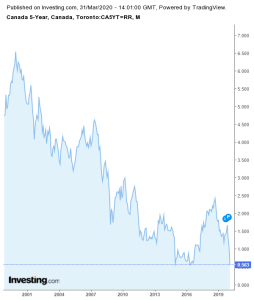All the COVID-19 Support Programs in Canada in one place
This is a great open-source Google Doc detailing, searchable, and categorized by need and situation. Brilliantly conceived. Updated frequently. https://drive.google.com/file/d/1lOJn7XS6ETIkbLRodYk681M_2dxkkQsc/view
Banks offering COVID-19 Relief on Auto & Personal Loans, Credit Cards, Credit Lines
Details of Major Banks offering relief in various forms
ATB Customer Relief Program
Credit Union customers – access to a variety of programs and solutions designed to ease difficulties with loan payments and short-term cash flow. Check with your Credit Union.
Important note – a payment deferral is not a forgiveness of the amount owed. It means the payments are deferred to a later time, when we will have to pay them back, plus the cost of interest charges on the interest deferred.
CANADA – COVID-19 Economic Response Plan: Support for Canadians & Businesses
NEW PROGRAM – CERB
CERB: Canada Emergency Response Benefit
- CERB will give workers who cease working or are receiving reduced employment income because of COVID-19 $500 per week for 16 weeks. The income will be taxable, but the gov’t will not deduct income tax at source.
- Dutton Employment Law Group’s excellent CERB review and FAQ
NEW PROGRAM FOR BUSINESSES – CEWS – This should be a big help to Employees and Contract Employees
Canada Emergency Wage Subsidy (CEWS) – to help Businesses keep & return workers to payroll retroactive to March 15.
- As a Canadian employer whose business has been affected by COVID-19, you may be eligible for a subsidy of 75% of employee wages for up to 12 weeks, retroactive from March 15, 2020, to June 6, 2020.
- This wage subsidy will enable you to re-hire workers previously laid off as a result of COVID-19, help prevent further job losses, and better position you to resume normal operations following the crisis.CEWS details previously published:
- CEWS provides a wage subsidy of 75% up to a maximum salary of $58,700 ($847 per week) for up to 12 weeks.
- It is available to all Canadian businesses that experience a 15% revenue reduction in March and 30% reduction in April and May (compared to either 2019 figures or 2020 figures), or to an average of their revenue earned in January and February 2020. There is no overall limit on the subsidy amount that an eligible employer may claim.
- The subsidy is retroactive to March 15, 2020.
- Businesses may measure revenue on the basis of accrual accounting (as they are earned) or cash accounting (as they are received); once a method is selected, it must continue to be used.
- Once an employer is found eligible for a specific period, they will automatically qualify for the next period of the program.
- The CEWS will provide an additional amount to compensate employers for their contributions to the Canada Pension Plan, Employment Insurance, Quebec Pension Plan and Quebec Parental Insurance Plan paid in respect of eligible employees who are on leave with pay due to COVID-19.
- The employer will be required to repay amounts paid under the CEWS if they do not meet the eligibility requirements.
Canada’s Federal COVID-19 Economic Response Plan – click the link for details on existing programs
NEW INFO – It appears that the federal government will use the CRA ‘My Account for Individuals’ to register for or to access electronic payments. Apply here for an individual CRA account unless you already have an account.
SERVICE CANADA – when their office are closed you can make an online Request For Service here – This online service request form is a temporary measure to ensure continuity of critical services.
Link to all Federal COVID-19 Programs
- These appear to be Automatic (but you should double-check on that):
- Enhanced Canada Child Benefit for the 2019-2020 benefit year, by $300 per child
- GST Credit increase
- A one-time special payment by early May 2020 through the Goods and Services Tax credit. The average boost to income for those benefitting from this measure will be close to $400 for single individuals and close to $600 for couples.
- Delay to Income Tax filing deadline to June 1, 2020 and payment deadline to Aug 31, 2020
- These you must Apply for:
- EI Work Sharing Program
- Federal Student loan 6-month payment moratorium. Note: this is a deferment, not a forgiveness.
ALBERTA – Immediate relief for Albertans affected by the COVID-19 pandemic
NEW INFO – you will need a MyAlberta Digital ID account to receive Alberta government COVID-19 benefits,
There is normally a 10-day waiting period after uploading your driver’s license to the site waiting to receive by mail your verification code.
COVID-19 Supports for Albertans
- Alberta student loan payments can access a 6-month, interest free, moratorium on payments.
- Emergency isolation support – a one-time payment of $1,146 will be distributed to bridge the gap until the federal emergency payments begin in April.
- Residential customers can defer electricity and natural gas bill payments for 90 days to ensure no one will be cut off, regardless of the service provider.
Important note – a payment deferral is not a forgiveness of the amount owed. It means the payments are deferred to a later time, when we will have to pay them back.
Other Existing Income Supports for Albertans – click the link for details on existing programs
Covid-19 Government Resources for Albertan Renters & Property Owners – courtesy of ‘COVID-19 Resources’
UPDATED – Health Resources official sites
For more information about COVID-19 itself, please check out these resources:


